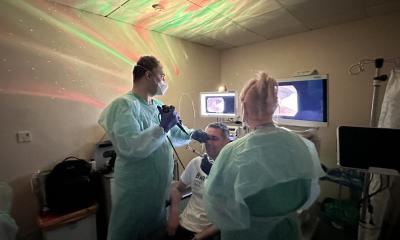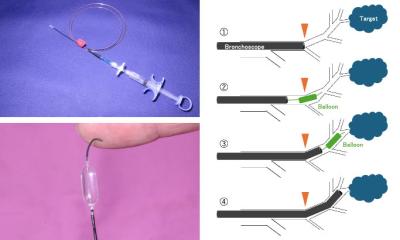Emergency endoscopy services need to be better organized
According to a survey published in the journal Clinical Medicine of the Royal College of Physicians, there seems to be a serious under provision of out-of-hours emergency endoscopy services for patients with gastrointestinal bleeding in the UK. The electronic survery was carried out by the British Society of Gastroenterology, which sent two questionnaires to the endoscopy leads of 188 acute NHS hospitals.

- 64% felt their emergency endoscopy service provision was unsatisfactory
- 51% of hospitals had no formal rota covering emergency endoscopy service
- 44% of respondents receive no remuneration for their out-of-hours work and more
- 38% thought their emergency endoscopy service was unsafe
- more than half of the consulted personell do not have their work specified in
contracts
“The finding that 64% of endoscopy leads rate their provision as unsatisfactory is worrying. The fact that 38% view services as unsafe is alarming,” says Dr Pranab Gyawali, SpR Gastroenterology, Whittington Hospital NHS Trust London, UK. “The provision of a safe service should not be viewed as an aspiration. A planned system for managing emergency GI bleeds is essential for all areas."
Doctor Ian Barrison, head of the BSG's Clinical Services and Standards Committee, agrees: "Innovations in services are needed, in particular new ways of working across organisational boundaries and the development of clinical networks of gastroenterologists".
‘Hospitals that currently received emergency admissions should formalise their rotas and there is also potential to link the rotas across different units,’ the authors suggest as possible solution for this situation. ‘Services need to better managed across hospitals – on-call endoscopists and GI nurses can travel to the hospital that admits the patient and regional centres should be created where patients can be admitted directly or transferred once they are stabilised. Different solutions are possible depending on local circumstances but they all require serious engagement by senior management with the consultant staff involved in delivering them.'
12.12.2007





